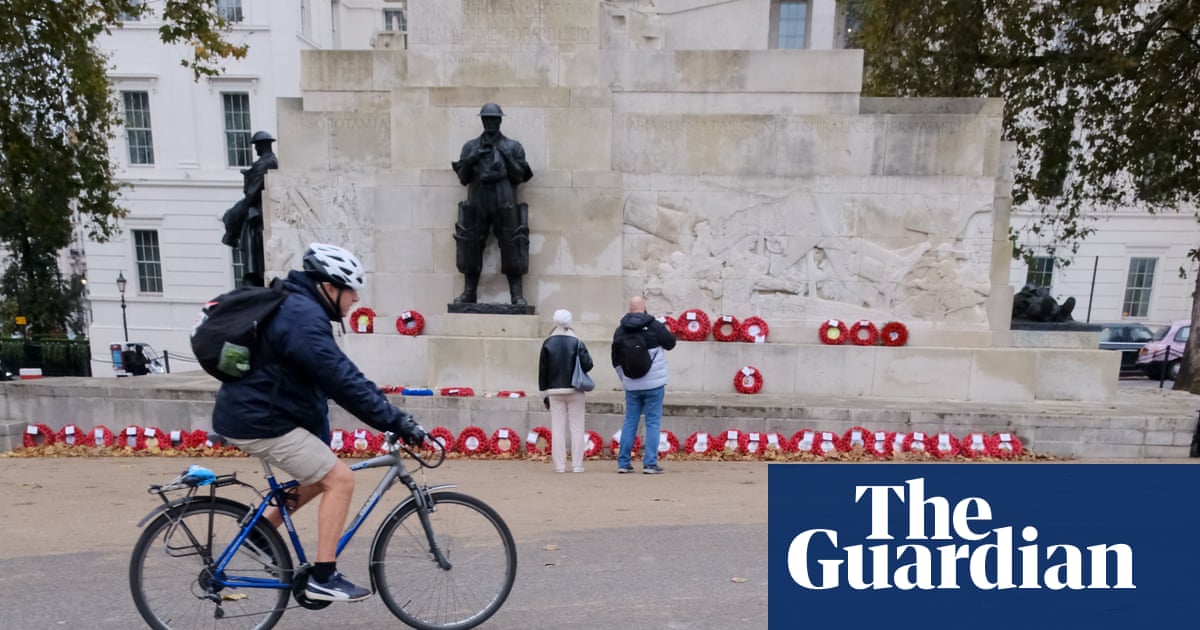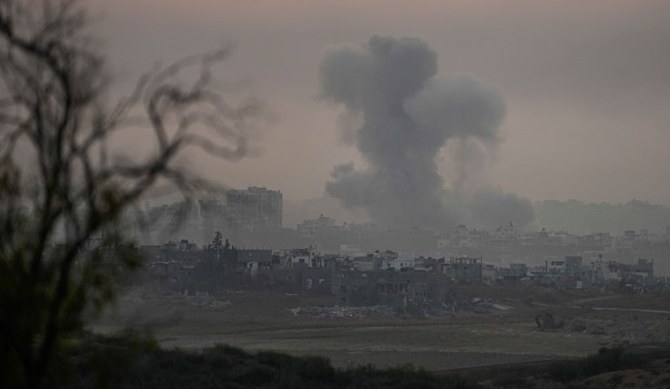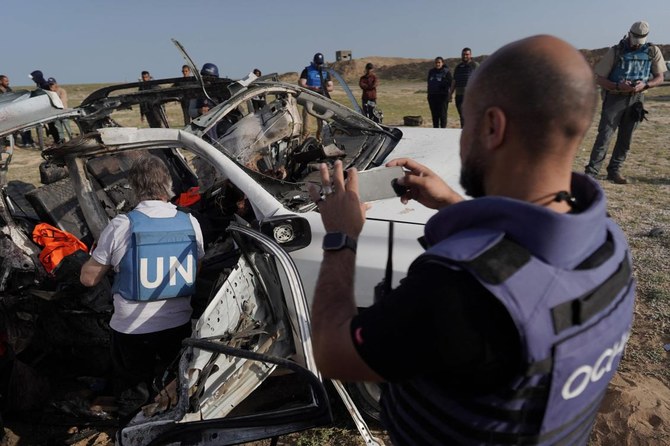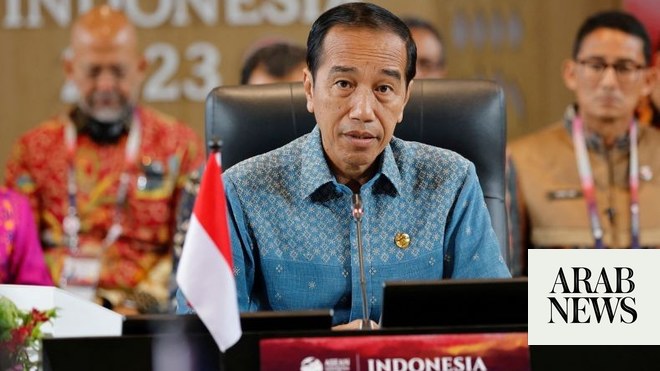
The actions of pro-Palestinian protesters who climbed on to a war memorial were “inflammatory” but not illegal, the Metropolitan police commissioner said on Thursday, as the government said it would consider giving police new powers to prevent “offensive” demonstrations.
Video footage appears to show at least two pro-Palestinian protesters clambering on the Royal Artillery Memorial at Hyde Park Corner, central London, on Wednesday evening, timed to coincide with a vote on calls for a ceasefire in Gaza in the Commons.
The video shows the protesters being spoken to by a police officer, and agreeing to come down.
The new home secretary, James Cleverly, criticised the “offensive” protesters who climbed on to the memorial, calling their actions “deeply disrespectful” and adding that he was considering “what further measures need to be taken so the police can take action”.
Cleverly, a former territorial army officer in the Royal Artillery, told LBC new powers would be examined.
“I’m not going to let my personal feelings cloud my judgment on this but it is clearly wrong, and the police have said that they recognise it is deeply disrespectful for people to climb on a war memorial.”
On ITV’s Good Morning Britain, he said: “These – and the police have said this – are deeply disrespectful actions. The war memorials recognise the sacrifice people have made for our freedom, and abusing, desecrating behaviour like this is deeply, deeply offensive.
“I will look at what further measures need to be taken so the police can take action on this.”
It comes after the government and police clashed over how to deal with large pro-Palestinian protests last week, with the Met commissioner, Mark Rowley, resisting demands for a ban on a pro-Palestinian march on Armistice Day amid claims it was disrespectful to Britain’s war dead and risked damaging the Cenotaph.
The march, agreed with protesters before the event, did not go close to war memorials or cause damage to them, with far-right demonstrators creating disorder and violence when they attacked police in Whitehall.
Wednesday’s incident led Downing Street to claim police do have powers to take action, contradicting Rowley, who had claimed they did not. No 10 gave no detail about what those laws may be.
On Thursday, Rowley warned against police “pandering”, saying officers must follow the law. He said: “It is it is not illegal to climb on to a statue. I think that might be something that government may consider.
“The officer recognised that whilst it wasn’t illegal, it was sort of … inflammatory in certain ways. The officers at the scene asked them to get down and they did.
“So the officers intervened, as officers often are doing, to try and de-escalate risk of conflict even when there isn’t explicit power to do it. What the officer didn’t do last night is make up a law that it’s illegal to do so … and do an arrest, which would have been illegal.”
The prime minister’s official spokesperson said the action was “an affront to our armed forces”.
He added: “It goes against British values and it’s not acceptable. The home secretary said this morning that we will look at what further measures are needed so the police can have confidence in taking action on this.
“We do believe there are powers available to them. But the public will have been shocked and, I’m sure, appalled by what they saw.”
Rowley, speaking at an event in central London, said the balance between protest and other rights was a matter for parliament.
“I think there are there are some practical provisions in the current public order powers, which in our view, don’t work very well. And we’ll talk about those with government,” he said.
“There are other issues which are much more profound … about the balance between the rights of some people to protest and the impact on others. That’s not an issue for policing. That’s an issue for parliament and democracy to work out where that balance is.”
Cleverly, in his first speech as home secretary, told police chiefs he would praise officers in public and criticise in private, in pointed comments following the sacking of his predecessor, Suella Braverman.
Addressing a police chiefs conference, he said he would make any criticisms “professionally, calmly, directly”.
Seeking to soothe relations which were fraught under Braverman, he said: “I will back you when you do the right thing, and I want you to know that I will be critical if I think I need to be critical, but I will always attempt to do so professionally, calmly, directly so that we always maintain that professional working relationship.
“For those of you who have worked with me before, my instinct is always to praise in public, to criticise in private.”
Braverman was effectively sacked on Monday after writing an article for the Times, accusing the Met of showing bias in favour of leftwing protesters.
That was after she had pressed for Rowley to ban a pro-Palestine demonstration in central London, which she branded a hate march.












